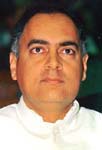The Myth of Muslim Appeasement
 India's MusIims number more than 120 million people, the largest minority group in this country and the second-largest Muslim population in the world.
Fifty years after freedom, the community finds itself in deep turmoil. The saffron surge, continous communal conflict and the denial of a better standard of living to large sections of Muslims has left them disgruntled and suspicious of successive governments. A predicament for which they blame the polity as well as the heterogenous society they co-habit. Professor Mushirul Hasan examines the state of Indian Muslims half-a-century after Partition.
India's MusIims number more than 120 million people, the largest minority group in this country and the second-largest Muslim population in the world.
Fifty years after freedom, the community finds itself in deep turmoil. The saffron surge, continous communal conflict and the denial of a better standard of living to large sections of Muslims has left them disgruntled and suspicious of successive governments. A predicament for which they blame the polity as well as the heterogenous society they co-habit. Professor Mushirul Hasan examines the state of Indian Muslims half-a-century after Partition.
Debates on the Uniform Civil Code have gone on ceaselessly since Independence. Muslim orthodoxy was unequivocally opposed to change,
and the liberal view became increasingly blurred because of the
unhappy intervention of Hindu ideologues as vocal proponents of
reform in Muslim personal law. The Congress stand had been ambivalent
from the days of Nehru until Rajiv Gandhi decided to throw his
government's weight behind the Muslim Personal Law Board in the Shah Bano case.This
was a significant and reckless departure from the informal consensus
established by Nehru on non-intervention in matters of faith.
 For the first time since Independence the priests and the politicians
spearheaded a massive, countrywide fundamentalist upsurge, setting
aside party and sectarian allegiances to crusade for a common
Muslim/Islamic cause. It was their finest hour. The grand alliance
paid off, as it did in the 'triple talaq' (divorce) controversy
a few year later.
For the first time since Independence the priests and the politicians
spearheaded a massive, countrywide fundamentalist upsurge, setting
aside party and sectarian allegiances to crusade for a common
Muslim/Islamic cause. It was their finest hour. The grand alliance
paid off, as it did in the 'triple talaq' (divorce) controversy
a few year later.
Urdu's uncertain future irked and tormented the north Indian Muslim
intelligentsia, yet it was hardly the main plank of any organised
or sustained agitation. Public rhetoric was mostly not matched
by action. Leading protagonists of Urdu conveniently abandoned
the cause -- Zakir Husain did so -- after being co-opted by the establishment. Scores of people lamented and shed tears over Urdu's
demise. Yet most were confronted by the officially-sponsored Urdu
academics, patronage through awards, the popularity of the language
in the otherwise 'Hindi' -designated cinema, and a few more or
less token concessions to linguistic sensibilities.
In the country
as a whole, the democratic and secular forces did not have the
necessary motivation to defend a language that symbolises India's
composite heritage. In UP and Bihar the Congress rank and file,
the socialists, the Lok Dal and the Janata Dal were either indifferent
or hostile to Urdu. The Hindu parties, of course, consistently
denied Urdu any official status. Thus when the UP Vidhan Sabha
adopted the Official Language (Amendment) Bill in 1989 amid unruly
scenes, the BJP's MLAs stormed into the well and raised anti-Urdu
slogans like Urdu Bill murdabad (Death to the Urdu Bill) and Ek
rajya, ek bhasha, nahi chahiye dusri bhasha (One state, one language,
a second language not required).
'Urdu poetry? How can there be Urdu poetry when there is no Urdu
language left? It is dead, finished. The defeat of the Mughals
by the British threw a noose over its head, and the defeat of
the British by the Hinduwallahs tightened it. So now you see its
corpse lying here, waiting to be buried.' This is not just the
anguish of a living Urdu poet in Anita Desai's novel, but a summation
of the anger of Urdu-speakers who were appalled by the treatment
meted out to the language. The story of a weak, gasping poet in
In Custody is also the story of Urdu language and literature.
Yet those living in India have to reckon with the stereotypical
images propagated by the Hindu traditionalists and nationalists
and their myth of a minority pampered by the 'pseudo-secularism'
of the Congress governments. 'For too long' thundered Uma Bharati,
the saffron-robed member of Parliament, 'the government treated
Muslims as ghar-jamai (literally, 'favourite-son-in-law). The
Congress was the principal target for reasons detailed in
Organiser, the RSS-BJP mouthpiece, and in the writings of Girilal
Jain, Arun Shourie and Swapan Dasgupta. Arun Shourie cited the
Congress and Janata Dal election manifestos of 1991 as 'excellent
examples' of minority appeasement.
 There are more specific charges. First, Muslims, along with Christians,
run their own educational institutions without any public accountability.
Secondly, they are allowed to marry four wives so that their population,
which stood at 25 million in 1947, shot up to nearly 100 million,
their high growth-rate was also due to unwillingness to adopt
family planning. The family planning scheme, it is argued, is
covertly if not openly forced upon the Hindus while the Muslims
and Christians are allowed to procreate without limitation. The
government dare not change its strategy for fear of losing Muslim
votes. Thirdly, for the same reason, Rajiv Gandhi imposed a ban
on Salman Rushdie's The Satanic Verses and his successor V P Singh
declared Prophet Mohammad's birthday a national holiday.
There are more specific charges. First, Muslims, along with Christians,
run their own educational institutions without any public accountability.
Secondly, they are allowed to marry four wives so that their population,
which stood at 25 million in 1947, shot up to nearly 100 million,
their high growth-rate was also due to unwillingness to adopt
family planning. The family planning scheme, it is argued, is
covertly if not openly forced upon the Hindus while the Muslims
and Christians are allowed to procreate without limitation. The
government dare not change its strategy for fear of losing Muslim
votes. Thirdly, for the same reason, Rajiv Gandhi imposed a ban
on Salman Rushdie's The Satanic Verses and his successor V P Singh
declared Prophet Mohammad's birthday a national holiday.
Finally, Muslims were willfully appeased by the Muslim Women (Protection
of Rights on Divorce) Act, 1986, and through official reluctance
to enact a Uniform Civil Code.
Excerpted from Legacy of a Divided Nation, by Mushirul Hasan, Oxford University Press, 1997, Rs 495, with the publisher's permission.
|

